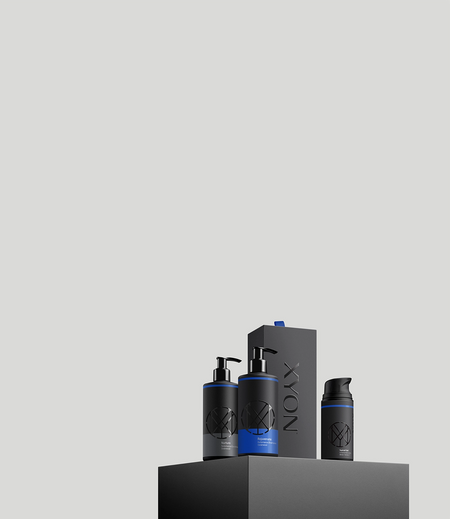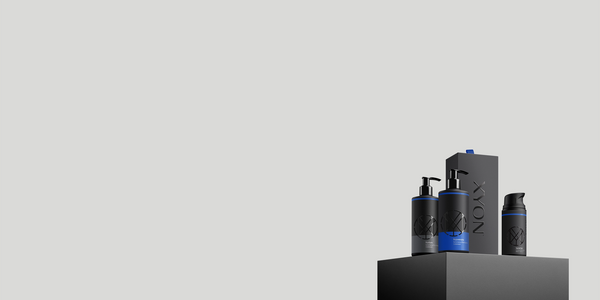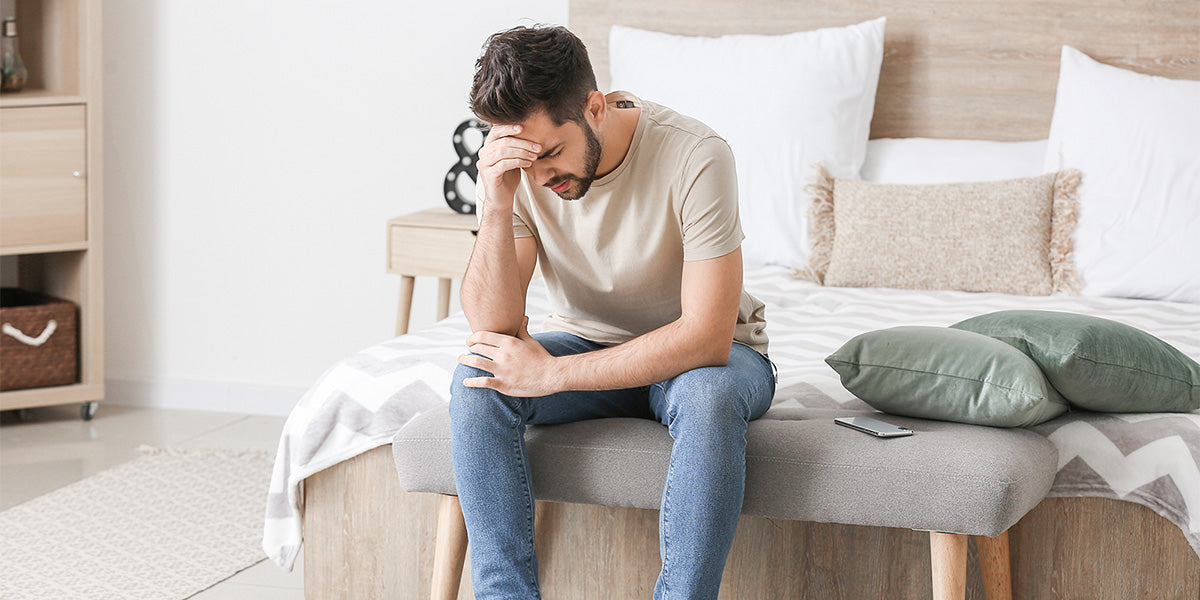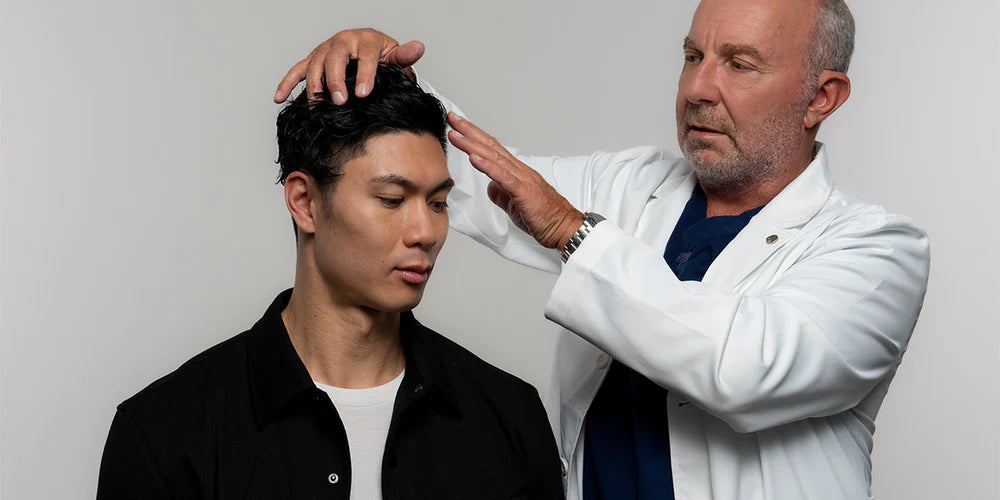Today more than ever, it can be difficult to feel confident. Experts often reference increased social media use as a possible reason for why feelings of “needing to fit in” have become so pervasive and research has shown that men, just like women, can be deeply affected by social media. Prominent within this culture for men, is the idea that losing your hair signifies a loss of youth or aging and for a lot of men, this can take a serious toll on their self-confidence and self-perception.
How does hair loss affect self-confidence?
Any unwelcome change to your physical appearance can be scary and losing your hair is no exception. A 2005 study showed that a majority of men consider hair to be an important part of personal attractiveness and hair loss can affect self-esteem in up to 62% of men (Alfonso et al, 2005). Confidence is a huge part of self-esteem and the onset of a receding hairline or balding crown often correlates with a drop in confidence. The culture of joking about balding, in place of acknowledging the mental health struggles that can come with lowered self-esteem and hair loss, can be profoundly damaging to men and continue to stigmatize male pattern baldness.


Balding doesn't have to be inevitable.
Get ahead of hair loss with our hair loss solutions and team of hair loss experts.
The standards set by social media
For many people, social media can be a great outlet for self-expression and creativity, but it can also perpetuate unrealistic expectations of body image. The ideal male body type predominantly represented on social media platforms is one who is toned and muscular (Gultzow et al, 2020), with a full head of hair. In reality, 37% of men worldwide have a body mass index considered overweight (>25kg/m) (Fleming et al, 2014), yet this type of male body is only portrayed on social media around 6% of the time (Gultzow et al, 2020). This is one way that social media participates in creating skewed representation of the ‘average’ male body.
Social media appears to be particularly damaging to the self-esteem of those who already struggle with insecurities, making these individuals less likely to create posts due to fear of rejection (e.g., not getting many likes, receiving negative comments) (Steinsbekk et al, 2021). We know that men with male pattern baldness are more likely to feel unattractive and experience low self-esteem (Wells et al, 1995), so those going through hair loss are often more vulnerable to the negative impacts of social media.
A study in 2019 showed that people who use social media ‘passively’, meaning that they engage in other people's posts but rarely create posts themselves, are more likely to suffer from low self-esteem (Krause et al, 2019). Today, it’s nearly impossible to avoid social media, whether it's a part of your job or you just want to remain ‘in the loop’. But those who don’t feel confident enough to create posts themselves, such as men struggling with insecurities with hair loss, are more likely to be passive social media users.
You might have noticed the damaging cycle that can form. Men with insecurities related to hair loss are less likely to post on social media, but are often still engaging in other people's posts, which can further fuel these feelings of low self-esteem and low confidence.
How hair loss solutions can help
Male pattern baldness is a common condition that has many treatment options and being proactive about seeking advice may help you to feel more confident in the long run. Market research conducted by XYON found that 41% of men were skeptical about whether any hair loss solutions out there really work, so we want to highlight the options available and explain how they might help you.
Finasteride and dutasteride
Finasteride and dutasteride are DHT-blocking drugs that work by blocking the conversion of testosterone into dihydrotestosterone (DHT). DHT plays a key role in male pattern hair loss, so blocking this hormone can prevent further progression of hair loss and may help with hair regrowth. Oral finasteride is FDA and Health-Canada approved for the treatment of hair loss and is available at XYON.
XYON also offers both topical finasteride and dutasteride, compounded in SiloxysSystem Gel™ which has been formulated to minimize the absorption of the medication into the bloodstream. The benefit of this is that it may reduce the risk of experiencing side effects, such as erectile dysfunction and low libido (sex drive).
Minoxidil
Topical minoxidil is an FDA and Health Canada approved medication for hair loss which can be bought over the counter and oral minoxidil may be prescribed off-label. The mechanisms behind this medication for hair loss are complex, but we know that it acts on blood vessels to improve blood circulation to the scalp, increasing oxygen and nutrient delivery which can be beneficial for hair growth. It may also influence the hair growth cycle, promoting follicles to stay in the active growth phase for longer. XYON formulated a topical solution, using SiloxysSystem Gel™ to deliver the clinically proven ingredients, minoxidil and finasteride in one gel.
Hair transplants
Surgical hair transplantation is a more invasive form of treatment for male pattern baldness. The procedure typically involves moving hair follicles from areas of the head that are still dense with hairs (such as the back of the head) to areas where hair loss has occurred. As with any invasive procedure, there are risks associated (e.g. infection, rejection) and this can be a more expensive option, however hair transplants typically have high success rates and can produce noticeable changes in hair growth.
Seeking advice and treatment for your hair loss could be the answer to improving your self-esteem and self-confidence. In fact, a study found that patients who underwent a hair transplantation for pattern hair loss experienced significantly elevated levels of self-esteem and increased satisfaction of their appearance (Liu et al, 2018).
Takeaway: hair loss and low self-confidence
The idea that hair is an integral part of a man’s appearance, along with unrealistic body images being constantly displayed on social media can contribute to and further fuel the insecurities and reduced self-confidence that many men experience when going through male pattern baldness. There are various treatment options available and speaking to a medical professional about your hair loss can be the first step to feeling more confident. Wherever you’re at with your hair loss journey, we’re here to help you get to the best version of yourself.
References List
Alfonso, M., Ritcher-Appelt, H., Tosti, A., Viera, M.S., Garcia, M. (2005). The psychosocial impact of hair loss among men: a multinational European study. Current Medical Research and Opinion, 21(11), 1820-36. https://doi.org/10.1185/030079905x61820
Gultzow, T., Guidry, J., Schnieder, F., Hoving, C. (2020). Male body image portrayals on Instagram. Cyberpsychology, Behavior and Social Networking, 23(5). https://doi.org/10.1089/cyber.2019.0368
Krause, H.V., Baum, K., Baumann, A., Krasnova, H. (2019) Unifying the detrimental and beneficial effects of social network site use on self-esteem: A systematic literature review. Media Psychology, 24(1), 10-47. https://doi.org/10.1080/15213269.2019.1656646
Lui, F., Miao, Y., Li, X., Qu, Q., Lui, Y., Li, K., Feng, C., Hu, Z. (2018). The relationship between self-esteem and hair transplantation satisfaction in male andorgenetic alopecia patients. Journal of Cosmetic Dermatology, 18(5), 1441-1447. https://doi.org/10.1111/jocd.12839
Fleming, T., Robinson, M., Thomson, B., Graetz, N., Margono, C., Mullany, E. C., Biryukov, S., Abbafati, C., Abera, S. F., Abraham, J. P., Abu-Rmeileh, N. M., Achoki, T., AlBuhairan, F. S., Alemu, Z. A., Alfonso, R., Ali, M. K., Ali, R., Guzman, N. A., Ammar, W., … Gakidou, E. (2014). Global, regional, and national prevalence of overweight and obesity in children and adults during 1980-2013: a systematic analysis for the Global Burden of Disease Study 2013. Lancet, 384(9945), 766–781. https://doi.org/10.1016/S0140-6736(14)60460-8
Steinsbekk, S., Wichstrom, L., Stenseng, F., Nesi, J., Hygen, B.W., Skalicka, B. (2021). The impact of social media use on appearance self-esteem from childhood to adolescence – A 3-wave community study. Computers in Human Behavior, 114. https://doi.org/10.1016/j.chb.2020.106528
Wells, P.A., Willmoth, T., Russel, R.J.H. (1995). Does fortune favour the bald? Psychological correlates of hair loss in males. British Journal of Psychology, 86(3), 337-344. https://doi.org/10.1111/j.2044-8295.1995.tb02756.x




